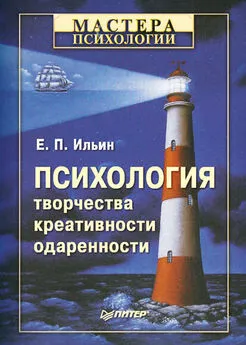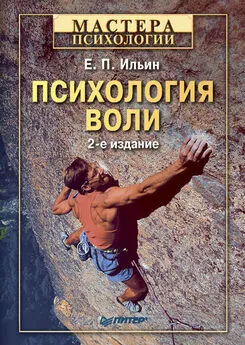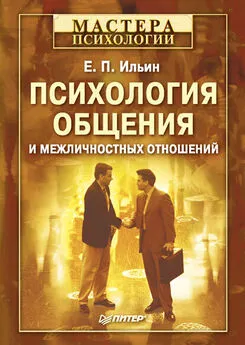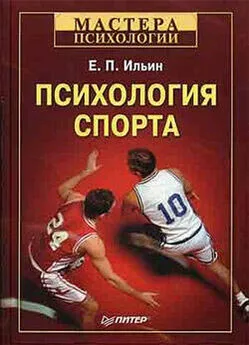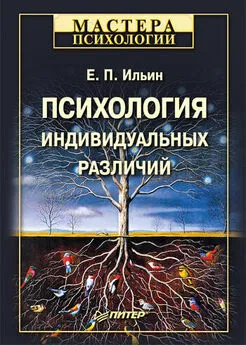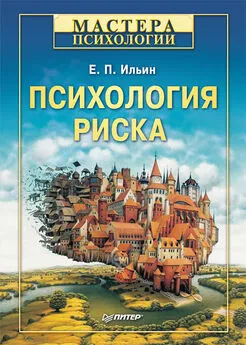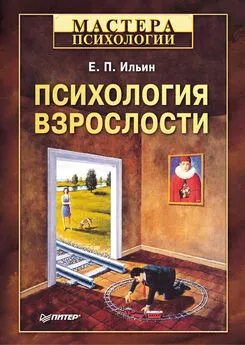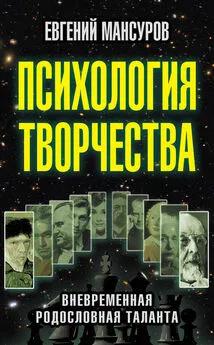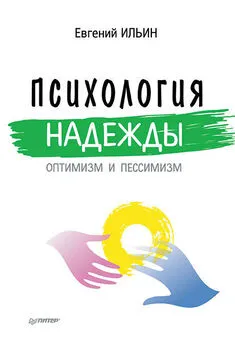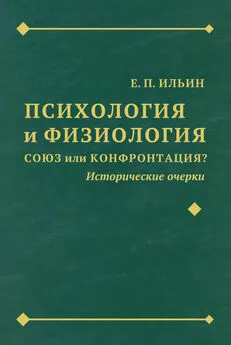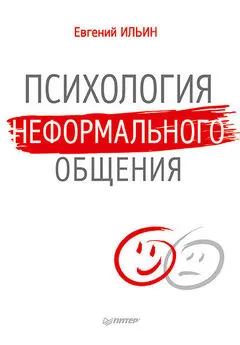Евгений Ильин - Психология творчества, креативности, одаренности
- Название:Психология творчества, креативности, одаренности
- Автор:
- Жанр:
- Издательство:неизвестно
- Год:неизвестен
- ISBN:нет данных
- Рейтинг:
- Избранное:Добавить в избранное
-
Отзывы:
-
Ваша оценка:
Евгений Ильин - Психология творчества, креативности, одаренности краткое содержание
Каковы особенности мотивации и пути управления творчеством? Существует ли связь между творчеством и продолжительностью жизни? Что такое способности и склонности? Каковы виды и методы оценки одаренности? В чем возрастные и гендерные особенности креативности? Как сделать личность креативной? Ответы на многие интересующие вас вопросы вы найдете в новом пособии профессора Е. П. Ильина.
Глубочайшая проработка темы, удачный симбиоз теории и практики, большое количество полезных методик делают эту книгу необходимой для психологов, педагогов, руководителей всех уровней, а также студентов профильных вузовских факультетов.
Психология творчества, креативности, одаренности - читать онлайн бесплатно ознакомительный отрывок
Интервал:
Закладка:
R. A. Finke (eds.). The creative cognition approach. Cambridge, MA. Bradford. 1995. P. 135–156. Smith S. M., Blankenship S. E. Incubation effects // Bulletin of the Psychonomic Society. 1989. V. 27.
P. 311–314.
Smith S. M., Blankenship S. E. Incubation and the persistence of fixation in problem solving // American
Journal of Psychology. 1991. V. 104. P. 61–87. Spender S. The making of a poem // P. Vernon (ed.). Creativity. NY. Penguin Books. 1972. Spitz H. H. The role of unconscious in thinking and problem solving // Educational Psychology. 1993. V.
13. № 3–4. P. 229–244.
Sprecher T. B. Proposal for Identifyng the Meaning of Creativity // C. W. Taylor, F. Barron (eds.).
Scientific Creativity. NY. 1963. Stein M. J. Creativity and Scientists // The National physical laboratories. The Direction of Research
establishments, L. 1957. № 3. Stein M. J., Heinze S. J. Creativity and the individual. Glencoe. Free Press. 1960.
Sternberg R. General intellectual ability // R. Sternberg (ed.). Human abilities. 1985. P. 5–31. Sternberg R. A three-facet model of creativity // R. Sternberg, T. Tardif (eds.). The nature of creativity.
Cambridge. Cambridge University Press. 1988. P. 125–147. Sterberg R. J., Davidson J. E. The mind of the puzzler // Psychology Today. 1982. V. 16. P. 37–44. Sternberg R., Lubart T. I. Defying the croud: Cultivating creativity in a culture of conformity. NY. Free
Press. 1995.
Sternberg R. J., Lubart T. I. Investing in creativity // American Psychologist. 1996. V. 51. P. 677–688. Sternberg et al. Practical intelligencein everyday life. NY. Cambridge University Press. 2000. Stevens R. The age problem in research workers: viewpoint of the research administrator // Scientific Monthly. 1951. V. 72.
Storfer M. D. Intelligence and giftedness. The contributions of heredity and early environment. San
Francisco. Oxford. Jossy-Bass Publ. 1990. Subotnik R. F., ArnoldK. D. (eds.). Beyond Terman: Contemporary longitudinal studies of giftedness and
talent. Norwood. Ablex Publ, Co. 1994. Sweeney E.J. Sex differences in problem solving. Stanford Univ., Dept. Psychol., Tech. Rep., № 1. Dec. 1.
1953.
Taylor C. W. (ed.). Creativity. Progress and potential. NY. 1964.
Taylor C. W. Cultirating multiple creative talents in students // Journal for the Education of the Giften. 1985. V. 8. P. 187–198.
Taylor C. W. Various approaches to and definions of creativity // R. Sternberg, T. Tardif (eds.). The nature
of creativity. Cambridge. Cambridge University Press. 1988. P. 99–126. Taylor C. W., Ellison R. Z. Prediction of creativity with the biographical inventory // P. E. Vernon (ed.).
Creativity, L. 1972.
Taylor C. W., Terman L. M. Perspectives of creativity: The intelligencequotient of F. Galton in childhood,
1917 // Studies in individual differences. NY. 1961. P. 134–139. Taylor H. F. The IQ game: A methodological inquiry into the heredity environment controversy. New
Brunswick. N.Y. Rutgers University Press. 1980. Tardif T., Sternberg R. What we know about creativity? // R. Sternberg, T. Tardif (eds.). The nature of
creativity. Cambridge. Cambridge University Press. 1988. P. 429–446. Terman L. M. The discovery and encouragement of exceptional talent // American Psychologist. 1954.
V. 9. P. 221–238.
Terman L. M. Psychological Approaches to the biography of genius // P. E. Vernon (ed.). Creativity, L. 1972. Tomkins S. S. Affect, immagery, consciousness. V. 1. The positive affects. NY. Springer. 1962. Thompson C., Dowding D. Responding to uncertainty in nursing practice // International Journal of
Nursing Studies. 2001. V. 38. № 5. P. 609–615. Thornton C. Connectionism, creativity and guided walks // T. Dartnall (ed.). Artificial Intelligence and
Creativity. Kluver Academic Publishers. 1994. P. 211–215. Torrance E. P. Guiding creative talent. Englewood Cloffs. NY. Prentice-Hall. 1962. Torrance E. P. Scientific views of creativity and factors affecting its growth // Deaduls: Creativity and
Learning. 1965. P. 663–679.
Torrance E. P. Rewarding creative behavior. Prentice-Hall. 1965.
Torrance E. P. Torrance test of creative norms: Technical manual. Princeton. NY. Personnel Press. 1966. Torrance E. P. Torrance test of creative thinking: Directions manual and scoring quide. Lexington, 1974 (а). Torrance E. P. Norms-thechnical mannual Torrance test of creativity thinking. Figural test E. P. Torrance.
Regional Press Linn and Company. 1974 (b). Torrance E. P. Growing up creatively gifted: A 22-year longitudinal study // Creative Child and Adult
Quarterly. 1980 (a). V. 5. P. 148–170. Torrance E. P. Creativity and futurism in education: Retooling // Education. 1980 (b). V. 100. P. 298–311. Torrance E. P. The nature of creativity as manifest in its testing // R. J. Sternberg, T. Tardif (eds.). The
nature of creativity: Contemporary psychological perspectives. Cambridge. Cambridge University
Press. 1988. P. 43–75. Treadwell Y. Humor and creativity// Psychologcal Reports. 1970. V. 26 (1). P. 55–58. Trojanowska-Kaczmarska A. Dziecko i tworczosc. Warshawa. PAN. 1971.
Tversky A., Kahneman D. Judgement under uncertainty: Heuristics and biases // Sciently. 1974. V. 185.
№ 4157. P. 1124–1131. Vaughan F. E. Awakening intuition. Garden Sity, NY, Anchor Books / Doubleday. 1979. Vernon P. E. Psychological studies on creativity // Journal of Child Psychology and Psychiatry. 1967. V. 8.
P. 135–165.
WakefieldJ. The outlook for creativity test // Journal of Creative Behaviour. 1991. V. 25. P. 184–193. Walberg H.J. Creativity and talant as learning // R. J. Sternberg, T. Tardif (eds.). The nature of creativity:
Contemporary psychological perspectives. Cambridge. Cambridge University Press. 1988. P. 340–361. Walker B. A., Reis S. M., Leonard J. S. A developmental investigation of the lives of gifted women // Gifted
Child Quarterly. 1992. V. 36. № 4. P. 201–206. Wallach M. A. Creativity // Carmishael\'s Manual of Child Development. NY. 1970. P. 1211–1272. Wallach M. A. Creaqtivity testing and giftedness // F. D. Horowitz, M. O\'Brien (eds.). The gifted and
talented. Developmental Perspectives. Washington, DC. American Psychological Association. 1985. Wallach M. A., Kogan N. A. A new look at the creativity – intelligence distinction // Journal of
Personality. 1965. V. 33. P. 348–369. Wallach M. A., Kogan N. A. Modes of thinking in young children: A study of the creativity-intelligence
distinction. Winston. 1965. Wallas G. The art of thought // P. E. Vernon (ed.). Creativity. 1972.
Walters J., Gardner H. The crystallizing experience: Discovering an intellectual gift // K. Sternberg et al.
(eds.). Conceptions of giftednes. Cambridge. Cambridge University Press. 1986. P. 306–331. Ward T. B. Structured imagination // R. A. Finke, T. B. Ward, S. M. Smith (eds.). Creative cognition:
Theory, research and applications. Cambridge, MA. MIT press. 1992. Ward W. G. Creativity in young children // Child Development. 1968. V. 39. № 3. Wason M. O. Creativity in schools // New Era. 1968. V. 19. Weiner B. Human motivation. NY. Holt. 1985.
Weinsberg P. S., Springer K. J. Environmental factors in creative function // K. Mooney, T. Razik (eds.).
Exploration in Creativity. NY. Harper. 1967. Weisberg R. Problem solving and creativity // R. J.Sternberg, T. Tardif (eds.). The nature of creativity:
Contemporary psychological perspectives. Cambridge. Cambridge University Press. 1988. Wertheimer M. Produktive thinking. NY. 1945.
Westcott M. R. Empirical studies of intuition // C. W. Taylor (ed.). Widening horizons in creativity. The
procedings of the fifth Utah creativity research conference. NY. London. 1964. Wicker F. W. A rhetorical look at humor as creativity // Journal of Creativity Behavior. 1985. V. 19 (3).
P. 175–184.
Winner E. Gifted Children. NY. Basic Books. 1996.
Winner E. The origins and ends of giftedness // American Psychologist. 2000. V. 52. P. 159–169. Winner E., Martino G. Giftedness in the visual arts and music // K. A. Keller, F. J. Monks, A. H. Passow
(eds.). International hanbook of research and development of giftedness and talent. Pergamon. 1993. Woods D. R., Humphries S. E., Montgomery H. E. The ACE I/D polymorphism and human physical
performance // Trends Endocrinol. Metabolism. 2000. V. 11. P. 416–420. Woodworth R. S., Sells S. B. An atmospheric effect in formal syllogistic reasoning // Journal of Experimental
Psychology. 1935. V. 18.
Woolhouse L. S., Bayne R. Personality and the use of intuition: Individual differences in strategy and performance on an implicit learning task // European Journal of Personality. V. 14. P. 157–169.
Yanometo K. Effects of restriction of range and test unreliability on correlation between measures of intelligence and creative thinking // British Journal educational Psychology. 1965.
Yong L. M. Relations between creativity and intelligence among Malaysian pupils // Perceptual and Motor Skills. 1994. V. 79 (20). P. 739–742.
Zazzo R. Les Jumeaux: Le couple et la persone. 1960.
Ziv A. Facilitating effects of humor on creativity // Journal of Educational Psychology. 1976. Ziv A. Personality and sense of humor. NY. Springer Publ. Co. 1984.
Zuckerman M. Behavioral expression and biosocial bases of sensation seeking. Cambridge. Cambridge University Press. 1994.
Примечания
1
П. К. Энгельмейер был по образованию инженером, но пытался создать новую науку о творчестве – эврилогию, будучи эрудированным и широко мыслящим человеком.
2
В. М. Бехтерев подходил к творчеству с рефлексологических позиций. Творческую ситуацию (проблему) он рассматривал как раздражитель. Данный раздражитель возбуждает рефлекс сосредоточения. Этот рефлекс в свою очередь вызывает благоприятный для деятельности мимико-соматический рефлекс. В итоге обеспечивается подъем энергии, связанный с действием сосудодвигателей и гормонов внутренней секреции, возбуждающих мозговую деятельность. Сосредоточение в сопутствии с мимико-соматическим рефлексом образуют в мозговой деятельности доминанту. Последняя привлекает к себе возбуждения из всех других областей мозга и тормозит иные процессы мозговой деятельности, не имеющие отношения к разражителю-проблеме. Собственно творчество – это ответная реакция на раздражитель. Продуктом творчества является совокупность рефлексов.
Читать дальшеИнтервал:
Закладка:
